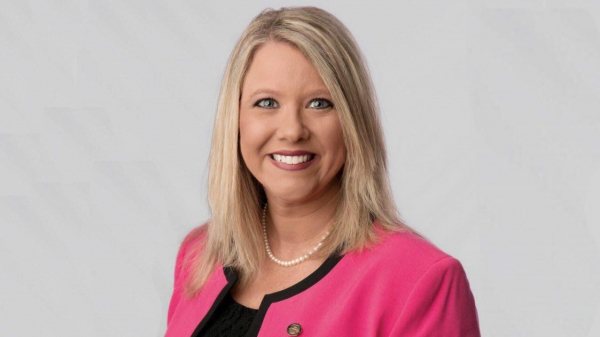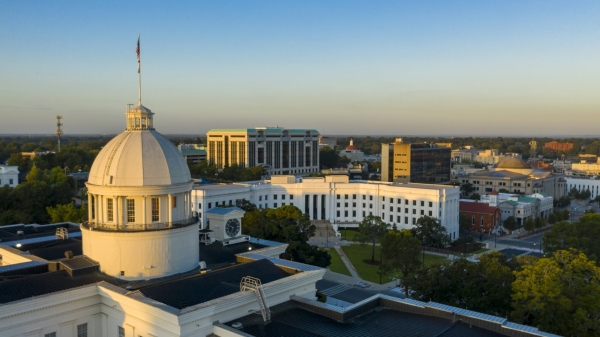Alabama’s 2025 legislative session saw budgetary investments toward expanding the state’s mental healthcare coverage, alongside several legislative pushes to reform mental health policies.
While the legislature has taken steps to tackle mental healthcare issues, reforms proposed at the federal level have cast uncertainty on the future scope of state-funded medical and mental health coverage.
Ahead of and throughout the legislative session, several key leaders across the state pointed to mental health and substance abuse care as key issues to be tackled by the Alabama legislature.
Alabama Senate President Pro Tempore Garlan Gudger, R-Cullman, called for the founding of a dedicated long-term substance abuse facility in the state during a Jan. 10 episode of Alabama Public Television’s program “Capitol Journal.”
“There’s not a long-term substance abuse facility in the state of Alabama, which is a shame,” Gudger said on the program. “And so, I want to be able to help with that and bring that to the people of Alabama if they need that because so many people are dealing with [substance abuse] throughout the whole state.”
Governor Kay Ivey, similarly, spoke out in favor of taking steps to improve mental health care during the Public Affairs Research Council of Alabama’s annual forum in March, which focused on efforts to expand mental healthcare services in Alabama.
“Mental health is a situation that a lot of people face, and they don’t know what to do or who to trust,” Ivey said. “It’s important that we spread out our efforts.”
Senate Bill 40 sponsored by state Sen. Keith Kelley, R-Anniston, marked the session’s primary legislative achievement regarding mental healthcare policy.
The bill establishes firearm hold agreements between individuals and federal firearm licensees in order to attempt to curb suicide rates amongst veterans.
The law was dubbed the Houston Hunter Act, named after Army veteran Houston Tumlin and Marine veteran Hunter Whitley—both of whom lost their lives to suicide.
Also enacted was Senate Bill 70, sponsored by Sen. Andrew Jones, R-Centre, which founded the Alabama Veterans Resource Center, a public corporation tasked with providing support services to veterans and their families as they transition to civilian life.
The legislative session also saw debate regarding several bills aimed at raising the medical age of consent—drawing criticism for potentially restricting youth access to mental healthcare.
Senate Bill 101, sponsored by Sen. Larry Stutts, R-Tuscumbia, will raise the age in which a minor can consent to medical, dental or mental health treatment without their parent or legal guardian’s approval from 14 to 16.
The bill provides exceptions for when school counselors or healthcare providers may administer mental healthcare services to those under 16 without their legal guardian’s approval. This includes when there is determined to be an imminent threat to the health of a student or others; when abuse, neglect or exploitation are suspected; or when there is immediate need for grief counseling.
House Bill 267, sponsored by Rep. Susan Dubose, R-Hoover, and Senate Bill 58, sponsored by Sen. Sam Givhan, R-Huntsville, similarly sought to raise Alabama’s medical age of consent to 18, but were not enacted.
Each bill contained provisions allowing minors to consent to services to prevent or treat pregnancy, sexually transmitted infections or drug or alcohol dependency.
These bills drew criticism during public hearings from opponents who felt the legislation would negatively impact minors in abusive homes, as well as delay treatment of urgent mental healthcare issues amongst minors through school counseling services. Meanwhile, their sponsors argued their necessity to give parents greater input in the treatment of their children.
Also passed during the session was House Joint Resolution 273, sponsored by Ontario Tillman, D-Bessemer.
The resolution creates the Joint Interim Study Commission on PTSD in first responders. The commission will examine how best to support first responders dealing with PTSD, with a final report due in the 2026 legislative session.
Senate Bill 236, sponsored by Sen. Will Barfoot, R-Pike Road, will revise the composition and qualifications of Regional Mental Health Authority boards. The bill will remote participation in meetings and provides that local boards reflect the diversity of their communities.
February also saw the opening of Alabama’s sixth crisis diversion center in Dothan.
According to the Alabama Department of Mental Health, these centers are open around the clock, with locations in Mobile, Huntsville, Montgomery, Birmingham, Tuscaloosa and Dothan.
New investments in mental health services were also seen in the legislature’s approved budget for the 2026 fiscal year.
The Alabama Medicaid agency saw a budgetary increase of $223.8 million, or a 19 percent increase, bringing the agency’s total budget to $1.18 billion.
ADMH also received a $4.7 million, or 2 percent, increase, bringing the department’s budget to $244 million.
The 2026 budget also included a combined $10 million investment to go toward community mental health centers, which drew more than half its funding from the Education Trust Fund appropriations act.
The end of the state legislature’s session came, however, as federal lawmakers have proposed spending cutbacks and reforms that have been projected to reduce Medicaid coverage access nationally and throughout Alabama.
U.S. House Republicans have debated and passed a budget proposal which nonpartisan health policy organization KFF estimated would render an additional 53,000 Alabamians uninsured by imposing work requirements on those who receive Medicaid through the Affordable Care Act.
The study also found if the current version of the bill, which has proposed ending ACA’s enhanced premium tax credits, is passed, roughly 170,000 people in the state will lose eligibility for federally funded healthcare services.
An April study from Addiction-Rep, a consultant and advertising provider for the drug rehabilitation and mental health industries, found mental illness in the U.S. is on the rise according to data drawn from the Substance Abuse and Mental Health Services Administration, the Centers For Disease and Centers for Medicaid and Medicare Services.
The organization highlighted that, according to SAMHSA data, an estimated 22.8 percent of U.S. adults reported living with a mental illness, up from 17.9 percent in 2015.
SAMHSA data also indicated increased rates of reported mental illness amongst young adults between ages 18 and 25, which had increased from 22 percent to nearly 34 percent.
Addiction-Rep also cited SAMHSA data indicating Medicaid enrollees are disproportionately affected by mental illness.
In 2023, 34.6 percent of adults on Medicaid experienced some form of mental illness, with serious mental illnesses—such as bipolar disorder and schizophrenia—affecting nearly one in ten Medicaid enrollees.
Alabama ranked 25th out of 37 states and Washington D.C. on the quality of their Medicaid mental health programs.
Addiction-Rep founder Jim Peake emphasized Medicaid’s importance to state-ran mental health programs and called for expansions to the program in order to curb rising mental illness rates.
“As the nation’s single largest payer for mental health services, Medicaid is a vital tool states use to keep people stable, employed, and out of emergency rooms or jails. Investing in behavioral health through Medicaid isn’t just compassionate—it’s smart policy,” said Peake. “It reduces downstream costs in criminal justice, homelessness, and crisis care. Any changes to Medicaid funding should be made with a full understanding of how central it is to maintaining order, reducing long-term expenses, and supporting vulnerable communities at the state level.”
Alabama currently has three state-operated inpatient psychiatric facilities for adults: Bryce Hospital, Mary Starke Harper Geriatric Psychiatry Center and Taylor Hardin Secure Medical Facility.
ADMH also provides inpatient psychiatric services for children and adolescents through East Alabama Medical Center in Opelika.

















































